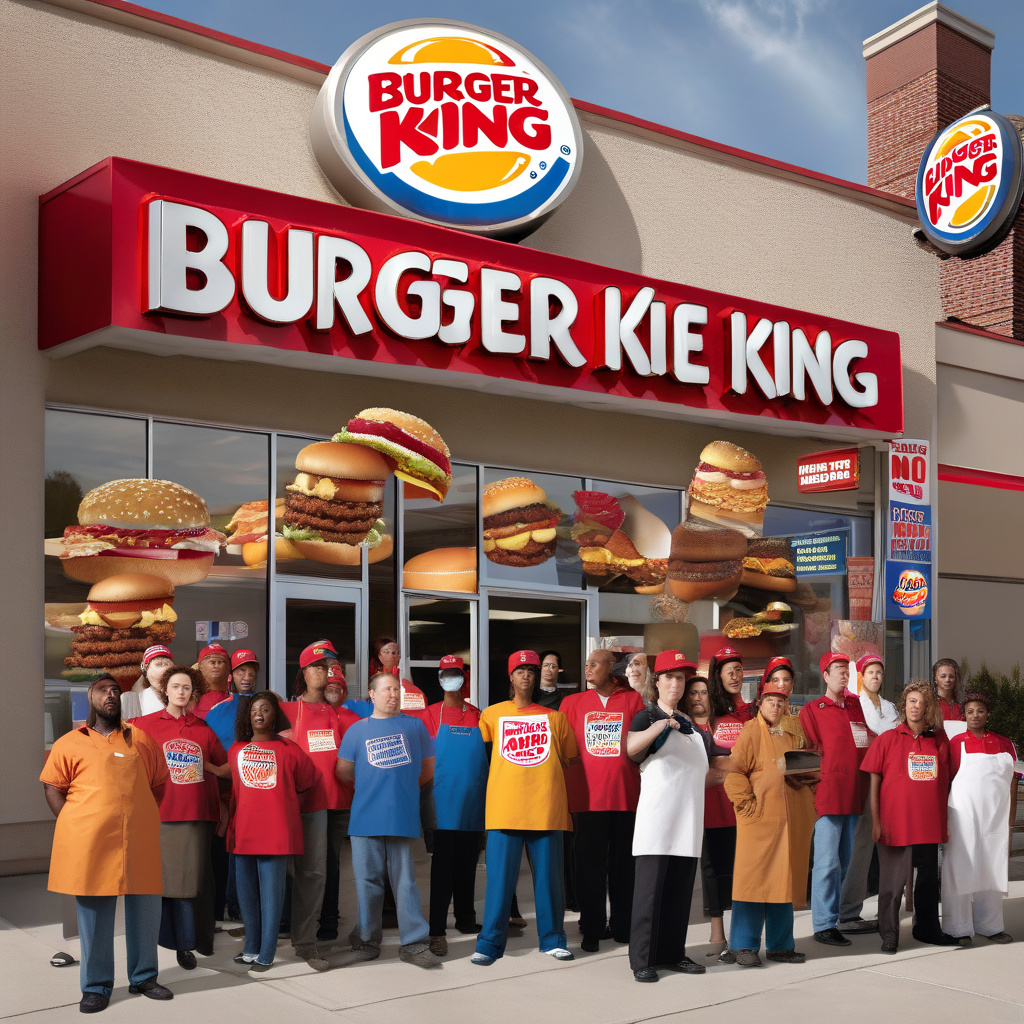Burger King Must Face Antitrust Lawsuit Filed by Workers Over ‘No-Poach’ Agreements Between Franchisees
In a significant legal development, Burger King finds itself at the center of an antitrust lawsuit filed by current and former employees. The lawsuit highlights the contentious issue of ‘no-poach’ agreements between franchisees, which have drawn scrutiny for potentially stifling competition and limiting job mobility. This case is not just a matter of corporate policy; it raises fundamental questions about workers’ rights and fair employment practices in the fast-food industry.
The crux of the lawsuit revolves around allegations that the ‘no-poach’ agreements between Burger King franchisees restrict employees from seeking job opportunities at other locations. This kind of arrangement, where franchise owners agree not to hire each other’s workers, can create a stagnant job market and limit wage growth, ultimately leading to a less competitive environment. Workers argue that such agreements diminish their bargaining power and restrict their ability to pursue better employment opportunities.
The implications of this lawsuit extend beyond Burger King. The fast-food industry, characterized by its high turnover rates and competitive labor market, has seen a rise in similar practices among other franchise models. The plaintiffs in the lawsuit contend that these agreements are not just unethical; they are potentially illegal under antitrust laws designed to promote free competition. By restricting workers’ mobility, these agreements can lead to lower wages and fewer job options, which can have a ripple effect on the broader economy.
Historically, ‘no-poach’ agreements have been a gray area in employment law. While some argue that such arrangements can be beneficial for franchisees looking to maintain a stable workforce, the reality is that they can also lead to monopolistic practices that harm workers. The Burger King case is particularly noteworthy because it shines a light on how these agreements can operate within a major franchise system, potentially influencing practices in other sectors as well.
The lawsuit was prompted by a growing awareness of the detrimental effects of ‘no-poach’ agreements, spurred on by advocacy groups and labor unions that have been vocal about the need for reform. In recent years, several high-profile lawsuits against major brands have brought attention to this issue, with varying degrees of success. For example, in 2021, a similar lawsuit against McDonald’s resulted in significant changes to their employment practices, illustrating that the tide may be turning against such restrictive agreements.
In the wake of these developments, many companies are reevaluating their policies regarding employee mobility. Some are voluntarily eliminating ‘no-poach’ clauses from their franchise agreements in order to foster a more competitive environment and improve their public image. This shift is not only beneficial for employees but can also lead to a more dynamic labor market, ultimately benefiting businesses as well.
For Burger King, the outcome of this lawsuit could have serious ramifications. If the courts rule against the company, it could set a precedent that forces the fast-food giant to overhaul its employment practices across its franchise network. This could lead to increased competition for workers, potentially driving wages up and improving working conditions. Conversely, if Burger King manages to successfully defend its practices, it could embolden other franchise systems to maintain similar agreements, perpetuating the cycle of stagnant wages and limited job opportunities.
The lawsuit also raises important questions about the responsibility of franchise owners. While franchises operate under the umbrella of a larger brand, they are often independently owned and operated. This autonomy complicates the issue, as franchisees may feel justified in setting restrictive employment practices in order to protect their business interests. However, the legal framework surrounding antitrust laws suggests that such practices may not be permissible if they harm competition and consumer welfare.
As the case progresses, it will be crucial to monitor how the legal landscape surrounding ‘no-poach’ agreements evolves. The outcome could establish new guidelines for franchises and influence how other companies approach their employment policies. In a post-pandemic world where labor shortages are a pressing issue, the stakes are high for both employers and employees.
In conclusion, the antitrust lawsuit filed against Burger King serves as a critical reminder of the need for fair labor practices in the fast-food industry. It challenges the notion that corporate interests should take precedence over workers’ rights and raises important questions about competition in the labor market. As this case unfolds, it will undoubtedly serve as a litmus test for the future of employment practices within franchises, potentially reshaping the landscape for workers seeking fair compensation and opportunities.
#BurgerKing #AntitrustLawsuit #NoPoachAgreements #FastFoodIndustry #WorkersRights
